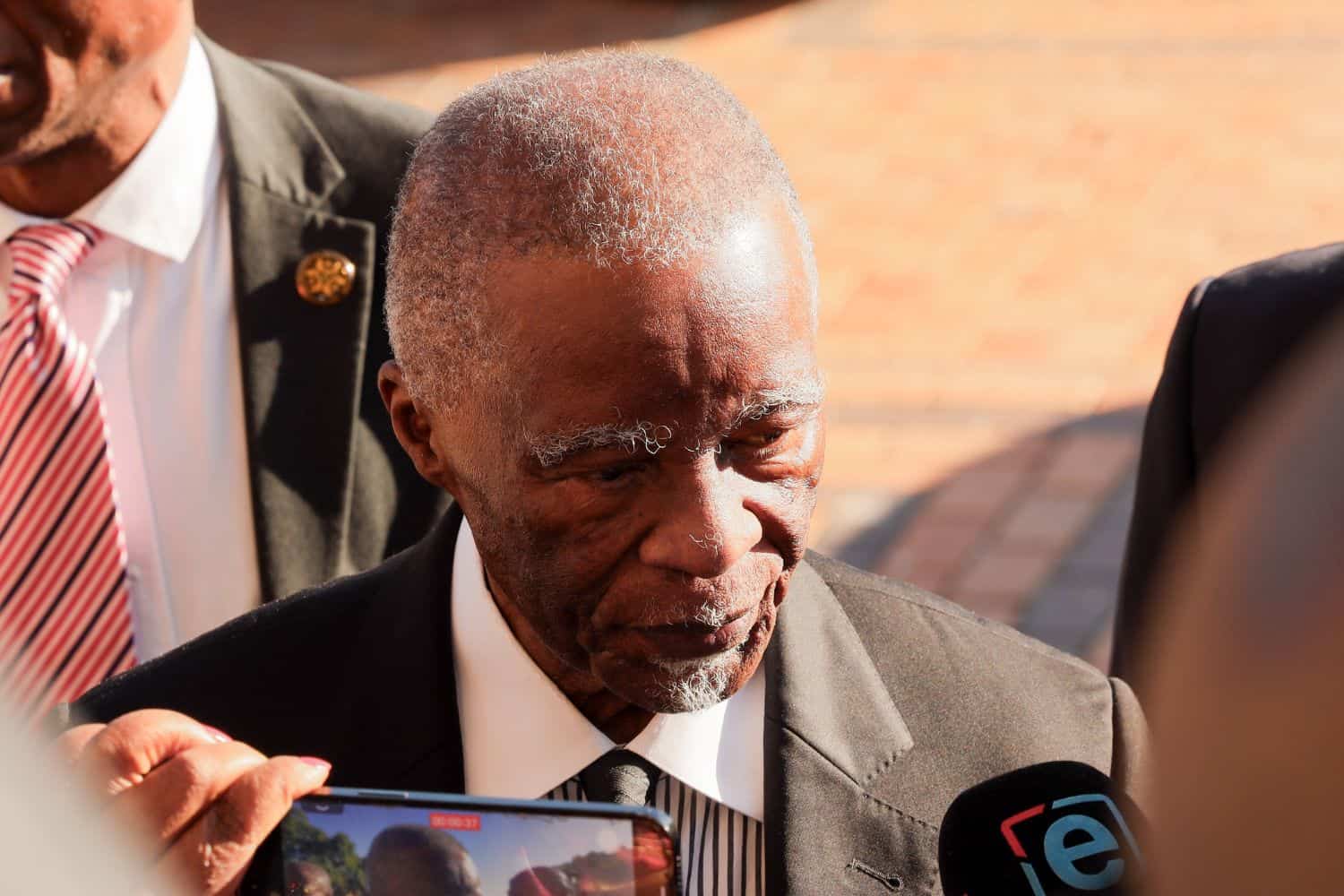The former president and justice minister were unsuccessful in their attempt to join a damages claim over apartheid-era crimes.

Former president Thabo Mbeki and ex-justice minister Brigitte Mabandla have lost a court battle to intervene in a R167 million damages case related to the failure to prosecute apartheid-era crimes.
The case was brought by the families of the victims, including the Cradock Four.
They argue that the government violated their constitutional rights by failing to implement the recommendations of the Truth and Reconciliation Commission (TRC) to prosecute those responsible for apartheid-era atrocities.
Government dragged to court over TRC prosecutions
The families allege that from 1998 to 2017, the government actively blocked investigations into TRC-referred cases.
They are asking the courts to award constitutional damages and set up a trust to manage the funds.
They also want a commission of inquiry on the lack of prosecutions.
However, President Cyril Ramaphosa established the commission in late April, before the court heard the damages application.
ALSO READ: Ramaphosa launches commission of inquiry into apartheid-era justice delays
Retired Constitutional Court (ConCourt) judge Sisi Khampepe will chair the inquiry, which will focus on events from 2003 to the present day.
In response, Mbeki and Mabandla applied to the Gauteng High Court in Pretoria to join the damages case.
The duo argued that they risk being blamed and having their conduct in office declared wrongful, potentially paving the way for the damages award.
High Court judgment
But judge Anthony Millar, in his judgment, dismissed Mbeki or Mabandla’s application, saying that the families’ court papers made no direct accusations against them.
“It is important to note that besides the fact that there are no direct allegations, the founding affidavit references the fact that the allegations of political interference are denied by Mr Mbeki,” Millar said.
“Neither Mr Mbeki nor Ms Mabandla are specifically named as having directly acted in any way to subvert or prevent the TRC investigations or prosecutions. References to them are by virtue of the offices that they held and by way of inference,” he said.
Mbeki and Mabandla told the high court that they had a direct and significant interest in the case, which justified their request to intervene.
READ MORE: Mbeki accused of trying to save his reputation by intervening in apartheid lawsuit
They argued that the serious allegations made against them were central to the case and would inevitably come up during the proceedings.
But the families contended that the damages case did not depend on whether Mbeki or Mabandla personally interfered.
That issue, they said, would be dealt with by the Khampepe commission.
“In their view, the application to intervene is made solely to address reputational concerns and ‘set the record straight’ regarding allegations which if established, would tarnish their reputation but not because there is any legal interest in the relief sought,” the judgment delivered on 1 August reads.
Mbeki, Mabandla lose bid to intervene
Millar concluded that the Khampepe commission is the “appropriate forum” for Mbeki and Mabandla to “tell their side of the story”, since they have “no direct and substantial interest” in the damages case.
The judge, therefore, dismissed their application but made no order for costs.
“Mr Mbeki and Ms Mabandla sought leave to intervene in their personal capacities and although unsuccessful, given the fact that the main application is constitutional in nature, I am of the view that no order of costs should be made.”
Support Local Journalism
Add The Citizen as a Preferred Source on Google and follow us on Google News to see more of our trusted reporting in Google News and Top Stories.








